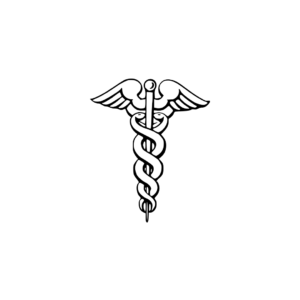Description
Overview of Bachelor of Science in Operation Theater Technology (OTT)
The Bachelor of Science in Operation Theater Technology (OTT) program is designed to prepare students for careers as operating room technicians and health professionals who assist in surgical procedures. This program focuses on various aspects of surgical technology, including patient care, sterile techniques, operating room management, and the use of surgical instruments and equipment. Graduates are equipped with the skills necessary to support surgeons and other medical staff during surgical procedures, ensuring patient safety and effective operations.
Core Areas of Study in B.Sc. Operation Theater Technology
Introduction to Operation Theater Technology
Overview of the role of surgical technologists in the operating room and the significance of their responsibilities in patient care and surgical procedures.
Human Anatomy and Physiology
Detailed study of human body systems, focusing on understanding the anatomical structures relevant to surgical interventions.
Surgical Procedures and Techniques
Comprehensive exploration of different types of surgical procedures, including open surgeries, minimally invasive techniques, and specialized surgeries.
Sterile and Aseptic Techniques
Principles of infection control, sterilization methods, and maintaining a sterile environment in the operating theater.
Surgical Instruments and Equipment
Identification and use of various surgical instruments, their handling, and proper care and maintenance of surgical equipment.
Patient Care and Monitoring
Skills for assessing patient needs, preparing patients for surgery, monitoring vital signs, and providing post-operative care.
Emergency Protocols in the Operating Room
Training in handling emergency situations, including complications during surgery and understanding protocols for life-saving measures.
Pharmacology for Surgical Technologists
Overview of medications commonly used in surgical procedures, including anesthetics, antibiotics, and understanding their effects and contraindications.
Ethics and Professionalism in Surgery
Discussion of ethical issues in surgical practice, including patient confidentiality, informed consent, and professional behavior in the operating room.
Clinical Practice in Operation Theater Technology
Hands-on experience in clinical settings, working alongside surgeons and medical teams to gain practical skills in the operating room.
Curriculum Structure
A typical Bachelor of Science in Operation Theater Technology program may include:
Core Courses: Essential subjects covering anatomy, surgical procedures, patient care, and operational protocols.
Laboratory and Clinical Experience: Opportunities for hands-on training within healthcare facilities, assisting in surgical procedures under supervision.
Electives: Options to explore specialized topics such as advanced surgical techniques, anesthesia technology, or management in surgical services.
Capstone Project or Internship: A project or practical experience that allows students to apply their skills in real-world operating room settings.
Admission Requirements
Admission to a B.Sc. in Operation Theater Technology program typically requires:
A high school diploma with a solid foundation in science courses, particularly biology and chemistry.
A minimum GPA as specified by the institution (often around 2.5 or higher on a 4.0 scale).
Some programs may require standardized test scores (e.g., SAT or ACT).
Letters of recommendation and a personal statement outlining the candidate?s interest in operation theater technology.
Skills Developed in a B.Sc. in Operation Theater Technology Program
Graduates of the Bachelor of Science in Operation Theater Technology program will develop critical skills, including:
Technical Proficiency: Ability to assist in surgical procedures, handle instruments, and manage equipment effectively.
Attention to Detail: Precision in maintaining sterile conditions and preparing the operating room for surgery.
Patient Care Skills: Competence in monitoring patients? vital signs and providing emotional support before, during, and after surgery.
Critical Thinking: Strong analytical skills for problem-solving and making quick decisions in fast-paced surgical environments.
Teamwork and Communication: Ability to work efficiently within a surgical team, communicating effectively with surgeons, nurses, and other healthcare professionals.
Career Opportunities
Graduates with a Bachelor of Science in Operation Theater Technology can pursue various career paths, including:
Operating Room Technician/Surgical Technologist
Assisting surgeons during procedures, preparing instruments, and maintaining a sterile environment.
Surgical First Assistant
Working directly with surgeons during operations, providing assistance with procedures and coordinating care.
Operation Theater Manager
Overseeing the daily operations of surgical departments, managing staff, and ensuring compliance with safety and quality standards.
Surgical Sales Representative
Marketing and selling surgical instruments and equipment to healthcare facilities.
Educator/Trainer in Surgical Technology
Teaching and training future surgical technologists in educational settings or clinical environments.
Conclusion
The Bachelor of Science in Operation Theater Technology provides a comprehensive education and practical training for individuals pursuing a career in the surgical field. By equipping students with the necessary knowledge and skills to support surgical teams and improve patient outcomes, graduates are well-prepared to meet the demands of this dynamic and rewarding profession. If you have any further questions about the B.Sc. in Operation Theater Technology program or related topics, feel free to ask!









